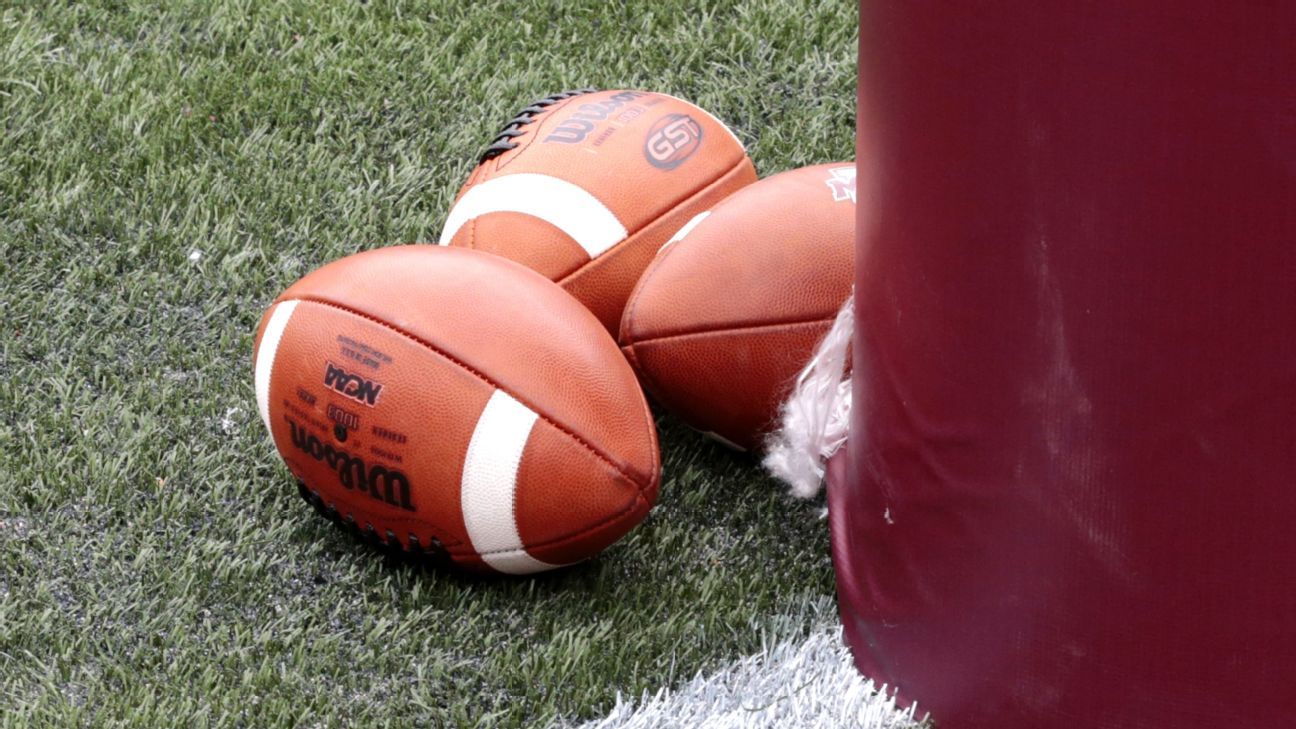
The ACC and SEC have not altered their plans to play a fall season despite decisions to postpone by the Big Ten and Pac-12 on Tuesday.
In separate statements, the ACC and SEC said they continue to make decisions based on the advice of their own medical advisory groups, along with local and state health guidelines. The Pac-12 and Big Ten cited information from their respective medical advisory groups in postponing fall sports.
Earlier Tuesday, the chairman of the ACC medical advisory group, Duke infectious disease doctor Cameron Wolfe, told Sports Business Daily he felt a season could be played safely.
SEC commissioner Greg Sankey said in a statement, "I look forward to learning more about the factors that led the Big Ten and Pac-12 leadership to take these actions today. I remain comfortable with the thorough and deliberate approach that the SEC and our 14 members are taking to support a healthy environment for our student-athletes. We will continue to further refine our policies and protocols for a safe return to sports as we monitor developments around COVID-19 in a continued effort to support, educate and care for our student-athletes every day."
The disparate medical opinions have only added to the frustration over the past week. Multiple ACC sources indicated that nothing has changed from a medical perspective since the Power 5 conferences announced their schedules last week, and there remains disbelief over how the Pac-12 and Big Ten reversed course so quickly. Those sources also indicated that much of the future decision-making could hinge on what happens with the Big 12.
Ideally, the ACC prefers a majority of the Power 5 conferences to play on. If the Big 12 decides to also delay until the spring, that could change the calculus, but it might not necessarily be a deal breaker.
For now, the Big 12 will continue moving forward intent on playing in the fall, multiple sources told ESPN on Tuesday, confirming a Yahoo Sports report. The conference's board of directors met for more than an hour on Tuesday to discuss the future of the season amid the Big Ten and Pac-12 decisions to postpone fall sports until 2021.
A revised Big 12 schedule is expected to be released soon. The conference will still play its "9-plus-1" schedule with nine conference games and one nonconference game, but it will delay the start of the season until Sept. 26, multiple sources told ESPN.
Baylor athletic director Mack Rhoades, in an interview with SicEm365 Radio in Waco, Texas, earlier said that if the league voted Tuesday, it would be close.
"I think everybody's grappling with [the Big Ten and Pac-12 decisions]," Rhoades said. "My sense is that if we voted today it would be a really, really close vote."
Rhoades said if he had to vote Tuesday, he would not be ready to do so and would urge the conference to take more time before making any final decisions.
"What I'm personally struggling with is I don't want to be forced into making a decision," he said. "This is obviously a big, big decision, and I don't feel like I personally could vote today and feel like I really voted on solid footing for the right reasons. If I was providing counsel, I would say, 'Let's pause, let's take one, two, three days, let's gather ourselves.' We've been thinking through it, it's not like we haven't known that this day is coming, and it's upon us. But for me there's just some things that I'd want to have some additional further conversation before we voted. I'm just being completely honest and transparent. I'm not comfortable making the decision today."
ACC presidents are scheduled to hold their weekly call Wednesday and will hear from the league's medical advisory group. It is also expected that the group will discuss the medical data the Pac-12 used to justify its decision to hold off playing fall sports until at least January.
One reason the ACC feels comfortable with pushing forward is the way football teams across the league have had little to no coronavirus cases over the past month. On Tuesday, Louisville tested 100 football players and had zero positive results. North Carolina and Pitt have not had any positive tests over the past month either, and Virginia has not had any since July 24. Boston College had zero during its latest round of testing.
"We are pleased with the protocols being administrated on our 15 campuses," the ACC said in its statement. "We will continue to follow our process that has been in place for months and has served us well. We understand the need to stay flexible and be prepared to adjust as medical information and the landscape evolves."
ESPN's Sam Khan contributed to this report.















 Phone: (800) 737. 6040
Phone: (800) 737. 6040 Fax: (800) 825 5558
Fax: (800) 825 5558 Website:
Website:  Email:
Email: 






